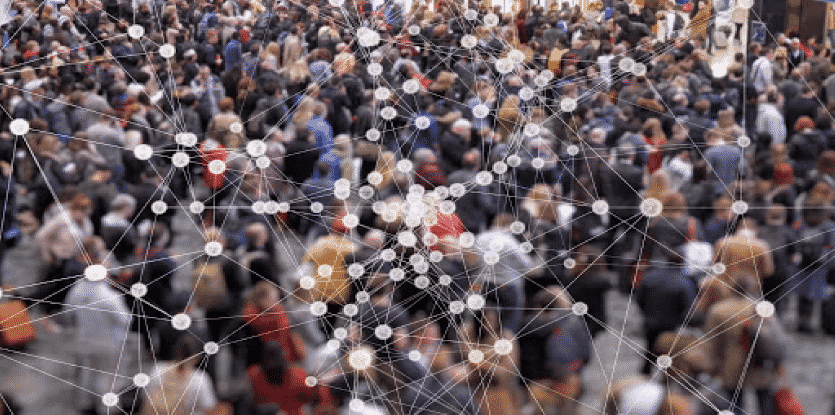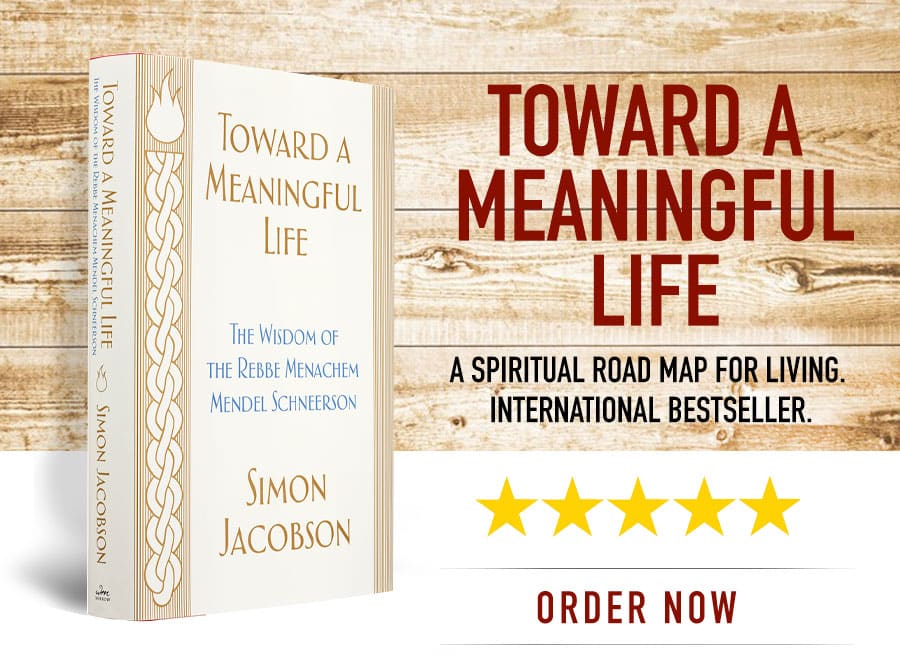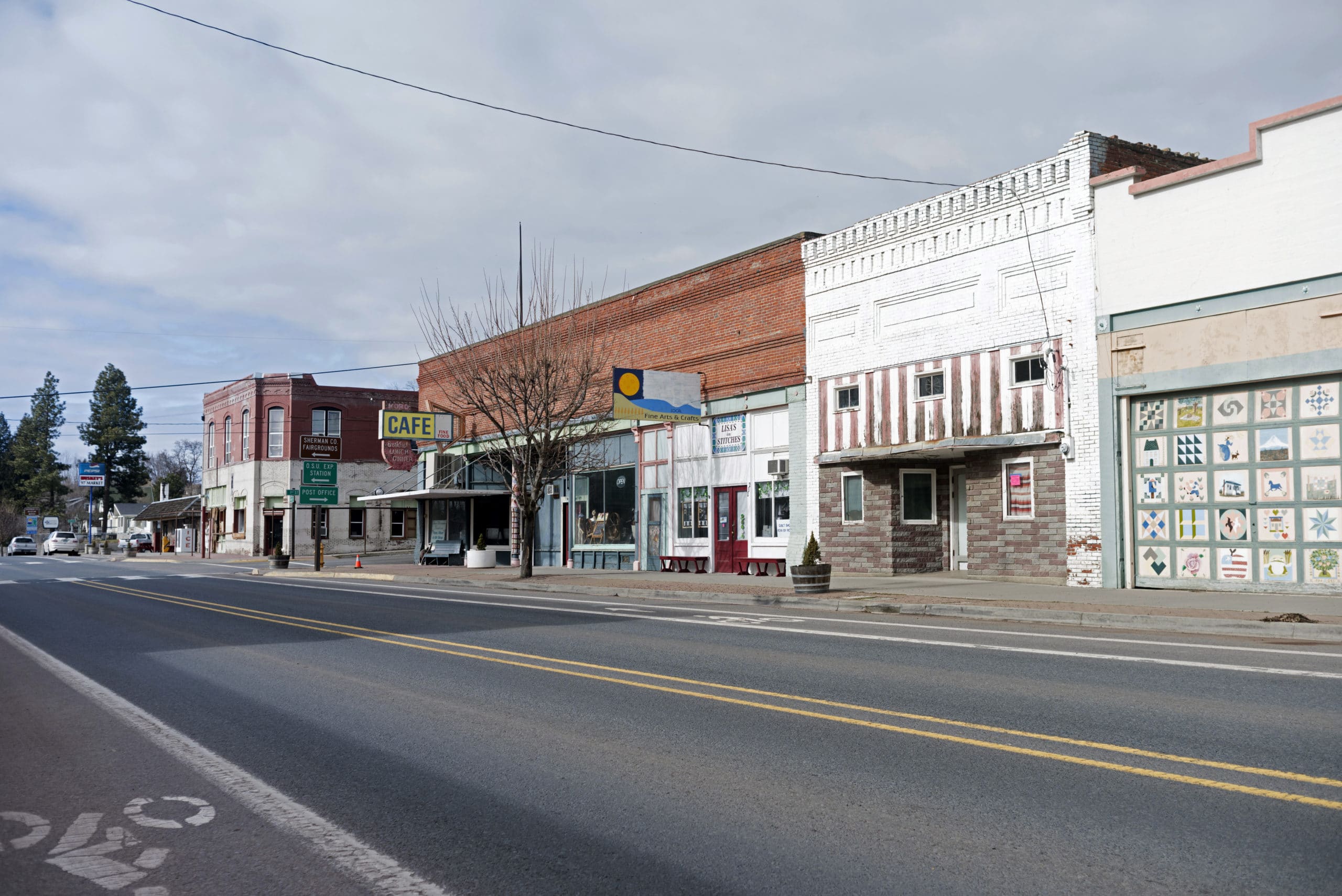Finding Real Security in Uncertain Times
When a calamity strikes the public we must cry out, examine our lives and act on it. To say that the calamity is just the way of the world and a coincidence is grossly insensitive
– Maimonides, Laws of Fasting 1:2-3
Upheaval — especially on a global scale — heralds in a new stage in life and in history. When life is shaken up we must not be tentative and defensive. We must intensify our offensive, become ever more proactive and initiate new programs that will better the world. For every disturbance we must add a new commitment to goodness
– The Rebbe
The Rebbe’s life was filled with upheaval. Born in 1902 in Czarist Russia, the Rebbe personally lived through the Russian Revolution and World War I and II. He was studying in Berlin when the Nazis came to power, and in Paris when they occupied France. After narrowly escaping Europe during the war, he arrived in the United States in 1941, settling in New York, and lived here during the turbulent and formative second half of the 20th century. When the Rebbe discussed upheavals over the years, a single thread ran through his talks — how to transform chaotic events into forces of positive change. He instructed us to use upheavals to fulfill our mission of integrating G-dliness into our daily lives. The Rebbe saw our generation as one of transition, and all the upheavals of our generation as part of the transition process. “We stand at the threshold of a new world,” he said in 1990. “We are concluding an age consumed with materialism, and entering the time of Redemption, an age of heightened spiritual consciousness, where materialism is but a means to the sublime.”
How Do We Cope With Upheaval?
Unlike personal tragedy and loss, which affect the lives of individuals and those close to them, upheaval is large-scale disruption that imperils communities, destabilizes nations or even endangers the entire world. Suddenly, the underpinnings of our security—personal safety, economic well-being, our very lives—have been sabotaged.
At such times, when the foundations of our worlds seem to be collapsing, it is difficult to avoid being overwhelmed by fear and uncertainty. We ask: What is happening? Will the world ever return to normal? How can we prepare for an unknowable, unpredictable future? Can we regain our equilibrium and overcome our feelings of alienation? The questions come faster than the answers, which may not come at all, and we grow disoriented and fearful. We may even become paralyzed, unable to gain a perspective on the events that have overtaken us or to regain control over our fates. In such a difficult situation, what can we do?
To live meaningfully, we must face upheaval directly and not retreat into fear or denial. Even the most dire experiences are part of life’s purpose and mission, and we must struggle to accept them in this spirit. We do not welcome calamities, and may even challenge G-d for allowing them, yet part of our challenge is to get beyond our anger, fear and pain in order to unearth possibilities for growth. Even when our way of life appears to be in jeopardy, we must school ourselves to detect in upheaval the seeds of transformation.
Before we can learn from cataclysm, however, we must recover from the shock and restore some sense of safety and security. In times likes these we need to seek comfort and strength from the people closest to us, family, friends and community. The hand we extend to calm and comfort our fellow human beings helps to ease our suffering as well.
A woman who suffered a great tragedy came to see her Rabbi. The Rabbi said to her: I have no answers for you, but I can cry with you.
The time for analysis and explanation comes later. The first response to large-scale trauma is communion, offering and receiving strength and solace. Empathy and compassion may appear to be merely ways to shield ourselves from the disorder around us, but they are also the first steps in the process of healing.
How Can We Comprehend Upheaval?
Once we ensure our own safety and the well-being of the people close to us, we can begin looking beyond the immediate crisis to comprehend the upheaval and what it means for us. When we see the larger picture, it is possible to learn and grow from our experiences. We may find that we resist taking these steps, that we are blocked by a second fear, deeper and more profound than the one associated with the terrible events: a fear of the unknown.
Fear and uncertainty are necessary, even healthy, parts of the growth process. Upheaval on a national or global scale is a sign of change. Just as the great cataclysms recorded in the Bible—the Flood, the Egyptian enslavement, the Exodus—represent stages in a grand, Divinely ordained historical plan, so are the ruptures of the geopolitical fabric in our own times. When we feel disoriented by what has happened—even if at first we experience panic and pain—we are acknowledging the profound changes taking place around us. It is disturbing to find ourselves suspended between a past that has been swept away and an unpredictable, unformed future. At such moments, what we see is destruction and disorder, and we cannot comprehend how today’s upheavals are beginning to usher in the future. But they are.
Our Sages teach, “Who is wise? The one who sees the birthing”[NOTE 1]—not just the darkness, but how it leads to light. Growth occurs in three stages: an embryonic state, a void between old and new, and a state of transformation. Upheaval is the middle, chaotic stage. From our human perspective, it may appear as an abyss, but in the larger view, it is the first sign of something new, a birthing. When catastrophic changes create disruptions to the everyday fabric of our lives, we can fall victim to them, or we can seize the opportunity to seek signs of the changes that follow troubled times. What we discover will lead us to an entirely new vision.
^^^^^^
Among the many great upheavals caused by World War One and the Russian Revolution was the devastation of religious life under Soviet rule. Millions of people were killed and others were persecuted and not allowed to live freely. One of the great Rabbis at the time, who openly defied the Soviet authorities, was arrested and sentenced to death. He was saved miraculously, and he later explained, that as difficult as the situation may be, we must hold on to our faith and know that these dark times will lead to a new renaissance of Jewish life and to the beginnings of a new world order where peace and freedom will reign. The Rabbi promised, that one day soon, we would see in retrospect how these terrible events (like the events that led to the miracle of Purim) were pieces of a bigger puzzle, steps in a process, and that by connecting the dots we would recognize the Divine plan that is leading us to a greater place.
WHAT BRINGS US TRUE SECURITY?
In times of upheaval, we are given the rare opportunity to perceive directly and with certainty what is true and real in our lives. As a result, we notice two crucial things. First, we see through the fragile, ineffectual material comforts we often rely on for our senses of security. Faced with a crisis, we immediately recognize that it is folly to depend on such insubstantial things for our safety and survival. Second, as we glimpse beneath the surface of our material realm, we begin to discern the outlines of a more enduring world, where we can locate a pillar powerful enough to support and protect us. We discover, in other words, the source of a security that is both permanent and eternal.
Our selves—our true selves—consist of two components: a body and a soul. Happiness is possible only when we bridge these dichotomous entities, when we nourish our souls as much as we do our bodies. True security is only possible when our material lives are rooted in and connected with our spiritual one.
This is not an ascetic doctrine, one that encourages us to deny our bodies or the material world. But we must acknowledge that material life is not a self-sufficient end in itself, it is but a means for spiritual expression and the body is a vehicle for our soul’s journey in this world.
The body and soul, however, are not natural allies; the material and spiritual worlds are often in opposition. In general, the more value we place on material things, the more challenging it is to discover the spiritual. It does not take long to reach the point where we are conscious of nothing but matter: our property, our prosperity and our professional achievements create a seductive illusion of worth and invincibility. As long as we are living comfortable lives free of disturbance, our illusions can be perpetuated.
The instant disaster strikes, we perceive with terrifying clarity just how mistaken we were to devote our lives to the pursuit of purely material ends. By rediscovering our inner purpose—and synchronizing the goals of body and soul—we can get back on course. To do so, each of us must ask, What do I stand for? What are my priorities? What should my purpose be? What would make me feel secure in this world, no matter what happens? The questions we ask in times of upheaval—and the answers we give—are probably the most critical of our lives.
When the world threatens to veer out of control, as it can when disaster strikes, we have an opportunity to glimpse behind its façade of false solidity and to take an honest look at ourselves as well. We may find ourselves face to face with the existential fear and loneliness that people have long wrestled with: that we are alone in our universe, that life lacks purpose and direction. In overcoming our terror, we answer the challenge to define our true beliefs, who we are and the values we live by. At such moments, we have an opportunity to discard old patterns of behavior and outfit ourselves with new ones.
This is an excerpt from Toward a Meaningful Life, part 1 of the chapter on Change and Upheaval. Read Part II.









Wisdom of the sageness. Thank You